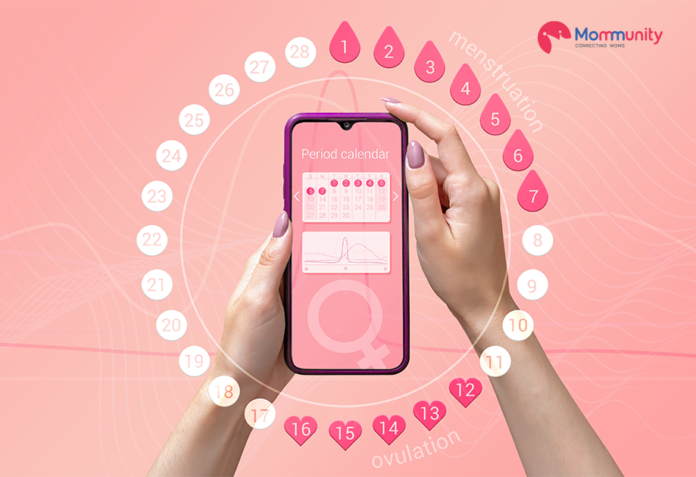|
Getting your Trinity Audio player ready...
|
Every woman’s menstrual cycle is unique, and it can provide valuable insights into her reproductive health and fertility. The menstrual cycle is a natural process that prepares the female body for potential pregnancy each month. Understanding the different aspects of your period can offer clues about your fertility. In this blog, we will explore the significance of your menstrual cycle’s length, regularity, bleeding duration, and other factors in relation to fertility.
What is a Menstrual Cycle?
The menstrual cycle refers to the monthly changes that occur in a woman’s body in preparation for pregnancy. It typically lasts around 28 days but can vary from person to person. During this time, hormones like estrogen and progesterone regulate the development and release of an egg from the ovaries.
Menstrual Cycle Phases
- Menstrual Phase
- Follicular Phase
- Ovulation Phase
- Luteal Phase
Does the Length of a Menstrual Cycle Matter?
Yes, the length of your menstrual cycle can provide essential information about your fertility. A regular cycle indicates a well-functioning reproductive system. The average menstrual cycle lasts between 21 to 35 days. However, if your cycle deviates significantly from this range, it might be worth investigating further to understand its potential impact on fertility.
- Importance of Cycle Length for Predicting Ovulation
- Tracking Ovulation and Fertility Awareness Methods
- Impact of Stress and Lifestyle on Cycle Length
- Normal Menstrual Cycle and Fertility
A normal menstrual cycle is an indicator of good reproductive health. Regular cycles generally suggest that you are ovulating regularly, which is vital for conception. During ovulation, an egg is released from the ovary, and it remains viable for about 24 hours. If fertilization occurs during this time, pregnancy can result.
Understanding Ovulation and Fertile Window
- Tips for Enhancing Fertility during the Fertile Window
- Optimizing Intercourse Timing
- Using Ovulation Predictor Kits (OPKs)
- Monitoring Basal Body Temperature (BBT)
- Cervical Mucus Changes and Fertility
- Age and Its Impact on Fertility
- Fertility Decline with Age
- Fertility Preservation Options
- Dealing with Age-Related Fertility Concerns
- Role of Hormones in Regulating the Menstrual Cycle
- Estrogen and Progesterone Levels
- Hormonal Imbalances and Fertility
Short Menstrual Cycle and Fertility
A short menstrual cycle, defined as one that lasts less than 21 days, can impact fertility. A shortened cycle might mean that there is not enough time for the uterine lining to thicken adequately to support a fertilized egg. Additionally, a shorter cycle can be associated with irregular ovulation or a hormonal imbalance, making it more challenging to predict the fertile window accurately.
- Causes of Short Menstrual Cycle?
- High-Stress Levels and Cortisol Impact
- Polycystic Ovary Syndrome (PCOS)
- Thyroid Disorders and Fertility
- Treating Short Menstrual Cycles for Improved Fertility
- Lifestyle Modifications
- Medications for Ovulation Induction
- When to Seek Professional Help
- Consulting a Fertility Specialist
- Fertility Tests and Assessments for Short Cycles
- Impact of Birth Control on Cycle Length
- Post-Birth Control Syndrome
- Regaining Fertility After Discontinuing Birth Control
Long or Irregular Menstrual Cycle and Fertility
On the other end of the spectrum, long or irregular menstrual cycles can also pose challenges to fertility. A long cycle, lasting more than 35 days, might be an indication of irregular ovulation or hormonal imbalances. Irregular cycles, where the length varies significantly from month to month, can make it difficult to predict ovulation accurately.
- Common Causes of Irregular Menstrual Cycles
- Ovarian Dysfunction and Fertility
- Endometriosis and Fertility Implications
- Uterine Fibroids and Fertility
- Impact of Polycystic Ovary Syndrome (PCOS) and Other Conditions on Fertility
- Managing PCOS for Fertility Improvement
- Autoimmune Disorders and Fertility
- Lifestyle Changes to Regulate Irregular Cycles
- Diet and Exercise Modifications
- Mind-Body Approaches for Stress Reduction
When Menstrual Bleeding Lasts More Than 5-7 Days
The duration of menstrual bleeding can also provide insights into your fertility. Typically, menstruation lasts around 5 to 7 days. If your period consistently lasts longer than a week, it’s important to investigate the cause. Prolonged bleeding may be a sign of certain health issues, such as uterine fibroids, endometriosis, or hormonal imbalances, which can affect fertility.
- Understanding Heavy or Prolonged Menstrual Bleeding
- Symptoms and Indications of Menorrhagia
- Diagnosing the Underlying Causes
- Managing Menstrual Flow and Seeking Medical Attention
- Medications for Heavy Bleeding
- Surgical Interventions for Menorrhagia
- Impact of Heavy Bleeding on Fertility
- Effect on Ovulation and Hormonal Balance
- Addressing Anaemia and Fertility
What if I Never Menstruate?
If you never menstruate, it is essential to consult a healthcare professional as soon as possible. Amenorrhea, the absence of menstrual periods, can be caused by various factors, including pregnancy, hormonal imbalances, stress, excessive exercise, or certain medical conditions. In some cases, fertility issues might be the underlying cause of amenorrhea.
Primary vs. Secondary Amenorrhea
- Causes and Implications
Diagnostic Tests and Examination
- Hormone Testing and Imaging
- Evaluation of Reproductive Organs
Treatment Options and Fertility Considerations
- Hormonal Therapy for Inducing Menstruation
- Addressing Underlying Health Conditions
Emotional and Psychological Impact of Amenorrhea
- Coping with the Emotional Challenges
- Seeking Support and Understanding
Impact of Lifestyle on Fertility
Your lifestyle choices can significantly influence your fertility. Certain habits and factors can affect your menstrual cycle and overall reproductive health. Understanding these influences can empower you to make positive changes to enhance your fertility.
- Impact of Diet on Fertility
- Nutrients Essential for Reproductive Health
- Foods That May Improve Fertility
- Foods to Avoid for Optimal Fertility
- Fertility-Boosting Recipes and Meal Plans
- The Role of Exercise and Weight Management
- Effects of Excessive Exercise on Fertility
- Addressing Weight-Related Fertility Issues
- Best Exercises for Fertility Enhancement
- Managing Stress and Its Impact on Fertility
- Stress-Reduction Techniques
- Mind-Body Practices for Fertility
- Fertility Yoga and Meditation
- Avoiding Harmful Substances
- Effects of Smoking and Alcohol on Fertility
- Impact of Environmental Toxins on Reproductive Health
- Minimizing Exposure to Endocrine Disruptors
- Importance of Sleep and Rest for Fertility
- How Sleep Affects Hormonal Balance
- Establishing Healthy Sleep Habits
- Fertility Tests and Assessments
If you are trying to conceive and facing challenges, fertility tests and assessments can provide valuable insights into the potential underlying issues. Understanding these tests and their implications can help you and your healthcare provider formulate an effective fertility plan.
- Hormonal Assessment
- Hormone Testing for Ovulation and Fertility Prediction
- Thyroid Function and Fertility
- AMH Testing and Ovarian Reserve
- Ovulation Monitoring Techniques
- Basal Body Temperature Charting
- Ovulation Predictor Kits (OPKs)
- Cervical Mucus Observation
- Fertility Ultrasound and Imaging
- Detecting Structural Abnormalities
- Evaluating Ovarian Reserve
Semen Analysis and Male Fertility Assessment
- Understanding Male Factor Infertility
- Lifestyle Modifications for Improving Sperm Quality
Treatment Options for Fertility Issues
Various treatment options are available for individuals facing fertility challenges. These treatments aim to address the underlying issues and improve the chances of conception. Understanding the available options can help you make informed decisions about your fertility journey.
- Lifestyle Modifications as a First Step
- Dietary Changes for Fertility Enhancement
- Exercise and Stress Management for Fertility
- Mind-Body Practices for Fertility Improvement
- Medications for Ovulation Induction
- Clomiphene Citrate
- Letrozole
- Gonadotropins
- Bromocriptine for Prolactin Issues
- Intrauterine Insemination (IUI)
- Indications and Success Rates
- Preparing for the IUI Procedure
- What to Expect During and After IUI
- In Vitro Fertilization (IVF)
- The IVF Process and Procedure
- IVF with Preimplantation Genetic Testing (PGT)
- IVF Success Rates and Factors Influencing Outcomes
- Coping with IVF Treatment Emotionally
- Egg and Sperm Donation
- The Role of Egg Donors in Assisted Reproduction
- Sperm Donation and Its Uses
- Embryo Adoption as an Option
Conclusion
Your period can reveal valuable information about your fertility and reproductive health. A regular menstrual cycle usually indicates healthy ovulation and fertility, while irregularities might signal potential issues that require further investigation.
If you have concerns about your fertility or menstrual cycle, or if you’re struggling to conceive, don’t hesitate to reach out to a healthcare professional or a fertility specialist. Understanding your body’s unique patterns and seeking timely medical advice can help you make informed decisions and take proactive steps toward achieving a healthy pregnancy and overall well-being.
Remember, each woman’s fertility journey is different, and seeking professional guidance can make a significant difference in your efforts to conceive and embrace motherhood. By taking charge of your reproductive health, you can optimize your chances of starting or expanding your family and embark on a fulfilling and joyous path to parenthood.




